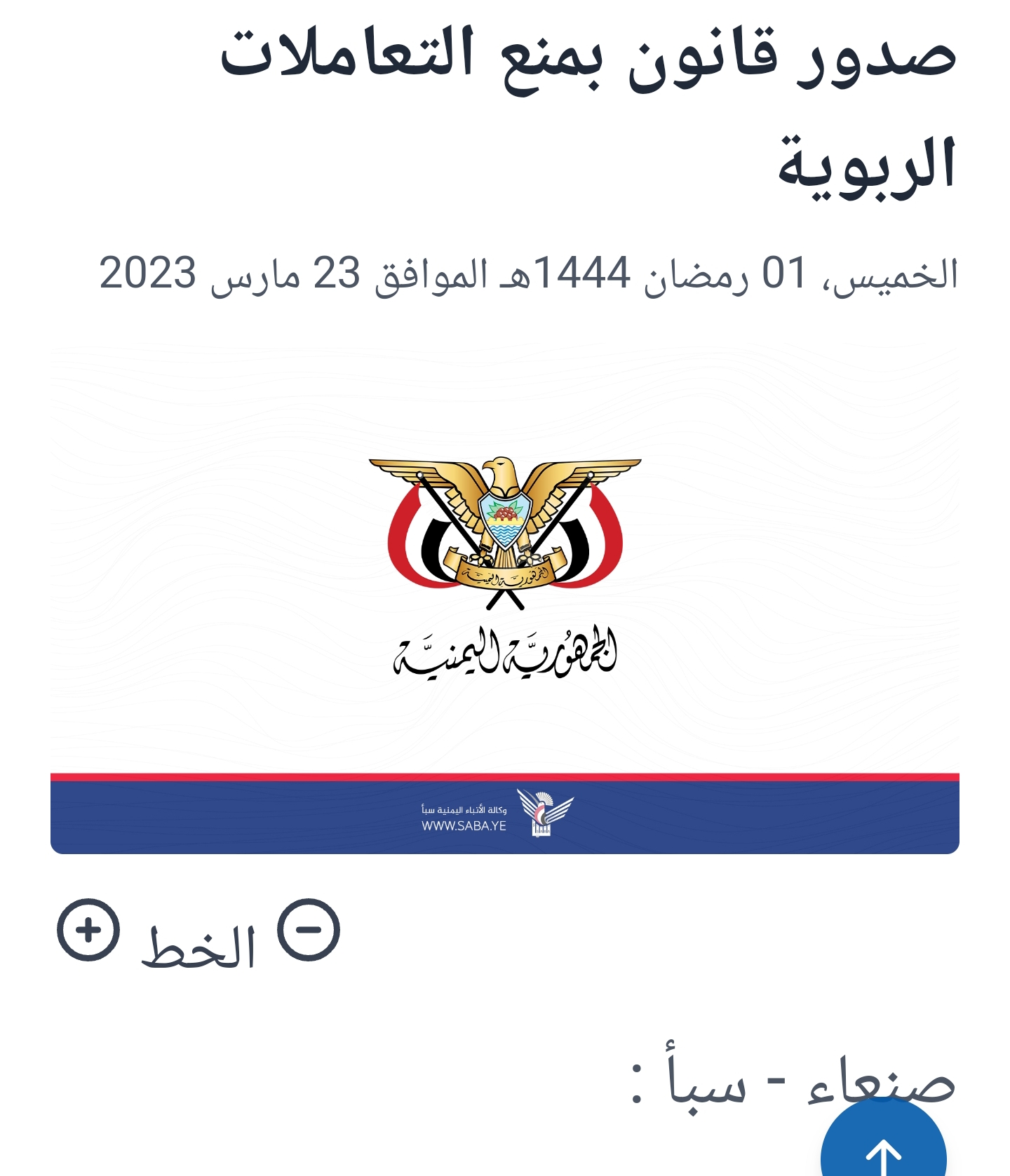Yemenat – special
On Thursday, March 23, 2023, corresponding to Ramadan 1, 1444 AH, the Supreme Political Council in Sana’a issued Law No. 4 of the year 1444, pertaining to the prohibition of usurious transactions.
The issuance of the law came two days after it was passed in the House of Representatives in Sana’a.
On Tuesday, March 21, 2023, the House of Representatives in Sana’a approved a draft law to prevent usurious transactions, as it was received from the government.
Representatives Ahmed Saif Hashed, Khaled Al-Saadi, Mukhtar Abu Ras and Abdul Rahman Al-Akwa withdrew from the session in which the vote took place. Representatives Hassan Sud Hafj and Zaidan Dahshush did not attend the voting session.
The parliament had referred the draft law to a joint committee consisting of a number of its permanent committees, but the strange thing is that the constitutional committee was not included in the joint committee.
Despite the effort made by the joint committee to revise the articles of the law, the surprise happened during the voting session, in which the committee’s effort was torpedoed, and the law was voted on as reported by the government, after the interventions and pressures the deputies were subjected to, as reported by a parliamentary source.
And the law that has become effective, jurists believe that many of its articles are inconsistent with the Constitution and other applicable laws, and represents a breach of international agreements.
Bankers and financial experts believe that it will cause damage to the banking system in the country, which may cause bankruptcy and closure of banks.
Jurists consider it legitimizing the looting of people’s money, and the confiscation of their acquired financial rights by force of law.
Politicians promised it as a partisan legislation that enshrines separation and puts obstacles to the unification of the divided banking system since September 2016.
The law met with great rejection among the various elites, but the de facto authority “Houthis” insisted on passing it despite its constitutional violations and conflicts with the laws in force and international agreements.
The draft law was discussed in the absence of the government side, despite directing a number of memos from the House of Representatives to the Minister of Finance and the Governor of the Central Bank to attend the House, but they refused to attend, which is an indication of the division of power regarding this law.
A parliamentary source, Yemnat, said that a letter was sent from the President of the Supreme Political Council to the House of Representatives, and it was read without being distributed to the members, in which the government side’s failure to attend was justified by their lack of understanding of the law, which is an indication that a party in power adopted the law amid the refusal of another party. .
According to the source, the head of the Supreme Political Council expressed his commitment in the letter to guarantee the funds of depositors, which was considered by observers to be nothing more than reassurance to the Council, noting that the Central Bank is concerned with guaranteeing the funds of depositors in various banks.
